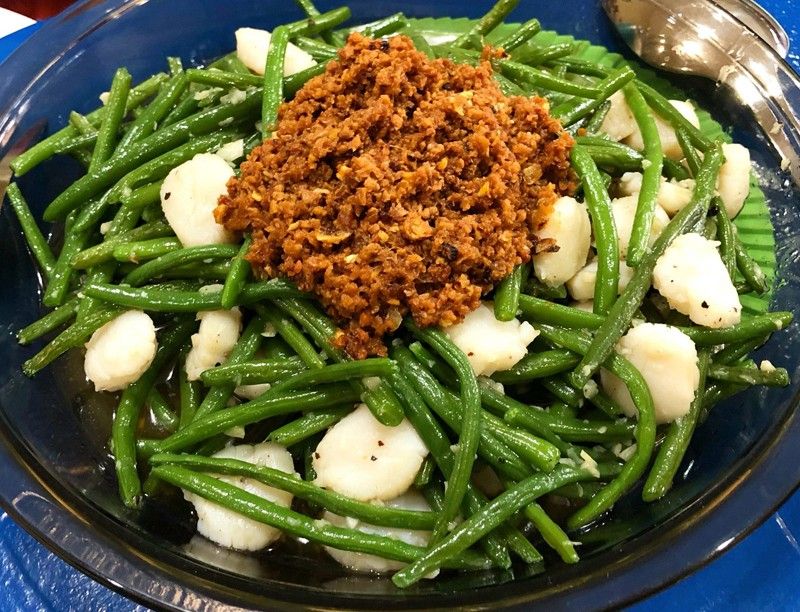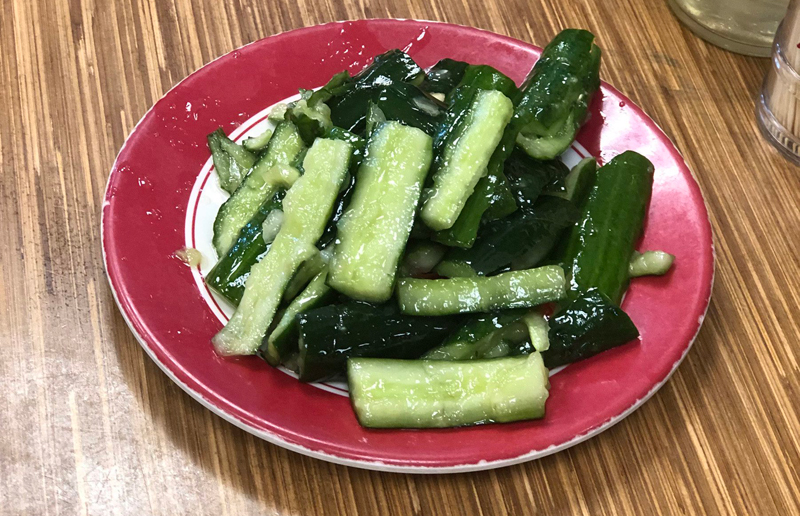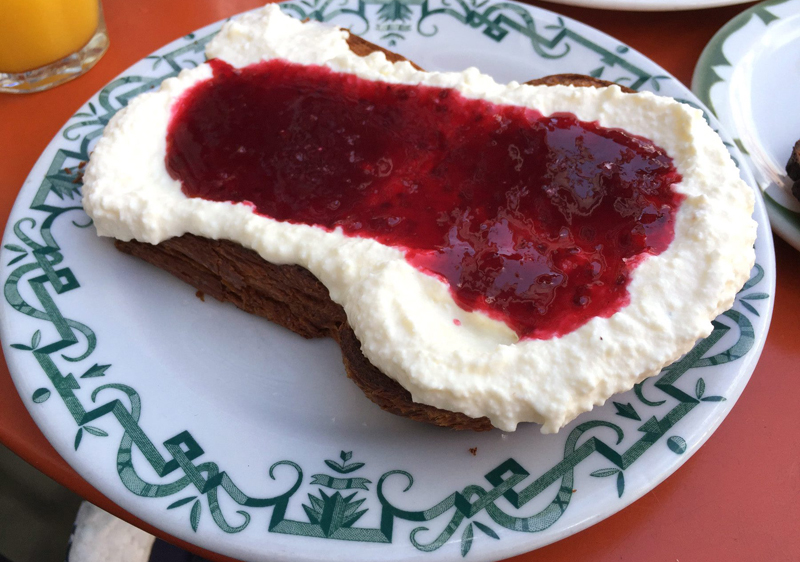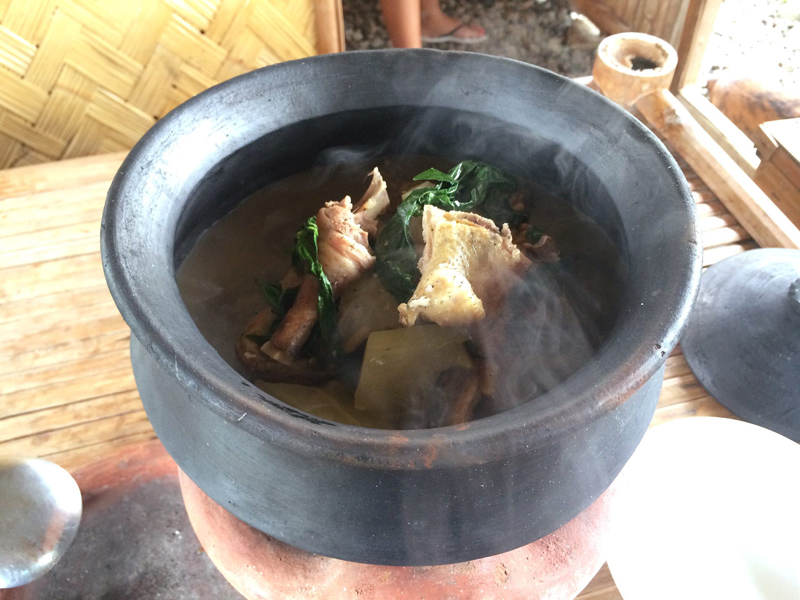Preserving in the time of COVID-19


In my last grocery run before the enhanced community quarantine was established, I noticed how the instant noodles and canned goods shelves were quickly emptied, while fresh vegetables and fruits were left mostly unnoticed. I was puzzled by this, but then a twitter follower explained that perhaps, people were concerned fresh fruit and vegetables would spoil faster and may not last until the quarantine ended.
Her point is definitely valid. In this time where we’re supposed to stay home, there is a particular value for goods that can last. This is why I want to share some of the best ways to preserve fruits and vegetables at home. In this way, we can still eat healthfully and get the nutrients we need in this time where it is crucial to keep our immune system strong.

Pickles
This is perhaps my favorite way of preservation. The process of pickling might sound intimidating to those who don’t cook often, but it’s actually pretty simple. For any basic pickle, you need only 4 major ingredients, the fruit or vegetable you’re pickling, salt, sugar and vinegar.
To start, slice the fruit or vegetable into thin, bite-sized pieces. My favorite fruits to pickle are green mangoes, pears and apples. Meanwhile, for vegetables, I like pickling radishes, carrots, and ampalaya. Then, you add salt and sugar. I usually use a 1:4 salt to sugar ratio to make the pickling liquid, but this is customizable to your tastes. Add just enough vinegar to cover the fruits or vegetables, store in a plastic or glass container (never store pickles in a metal container), chill in the ref. Pickles, as long as they were handled with clean hands, can last up to 2-3 months. Of course, they won’t last that long because pickles are delicious!
Feeling like an expert after making the basic pickle? Add even more flavors to suit your taste. You can add black pepper or chili pepppers to make the pickle spicy or you can add herbs or garlic to add even more flavor.

Jams/Butters
If vinegar is not your thing, sweets probably are. Another great way to preserve fruits and vegetables to make jam. While a cursory check on the internet will show you that a lot of jam recipes call for pectin, there are still a lot of jams you can make without adding pectin. Watermelon, pineapples, oranges and even tomato all make for great jams without needing to add pectin. Just cut the fruits into small pieces and cook in a pot with sugar. Cook the fruits until the solid pieces turn to mush and the liquid thickens up. Then blend it up and you have jam that can last pretty much half the year. You can do the same with apples and make apple butter too!
Once you’ve got the hang of it, you can add your touches too. Add basil to your watermelon or tomato jam, chili peppers into your pineapple jam or cinammon and nutmeg to your apple butter. The choices are endless and let’s face it, it’s difficult to screw up with something as sweet as jam.
Frozen Vegetables
You can freeze your vegetables, and I don’t mean buying the frozen kind which may or may not have been frozen years ago. If you have leafy greens like spinach or kang kong or green vegetables like brocolli or green beans, they can be frozen before the change color and go bad.
Clean and trim the vegetables and then cook them in boiling water for only 30 seconds. Then, immediately dump the cooked vegetable into an ice bath until the vegetable is cold (not just cool) to the touch. Remove the vegetables from the water and dry them on paper towels. Then you can store them in ziplog bags and freeze. These frozen vegetables will last for a month.
Once you are ready to use them, just take them out of the freezer, and add them directly to the soup or stew you are making. If frying or sauteing the vegetable, you can dump them into the saute pan directly as well.

Make soup
Another easy way to maximize the nutrients of fruit and vegetables is to make soup! Soup does very well in the freezer and it has the added advantage of being very easy to reheat. Just put the soup in the microwave or boil in a pot. This is especially great for starchier vegetables like squash, mushroom, carrots or potatoes. When making cream soup or chowder, though, it’s better to add the cream only when you are eating it. Don’t add cream to the soup if you’re freezing it. It ruins the texture.
Oil
What about fresh herbs? Well, the best way would be to make pestos or oils. Just combine your herbs with olive oil, salt and pepper and blend together. You can also add aromatics like ginger or garlic to make the oils even more flavorful. Herb oils can be kept in the chiller and they can last for months!
The community quarantine is asking of us to sacrifice our freedoms a bit to help flatten the curve but it doesn’t mean we have to eat processed food all the time. Use these tips as your guide and get your nutrients from fresh fruit and vegetables. Eat well and stay healthy!
* * *
Sharwin’s book, “So, You Want To Be A Chef?” is available in all National Bookstores and Powerbooks nationwide. Follow Sharwin’s food adventures on Instagram @chefsharwin and for questions, reactions, recipe and column suggestions, you can contact him on www.sharwintee.com.



















